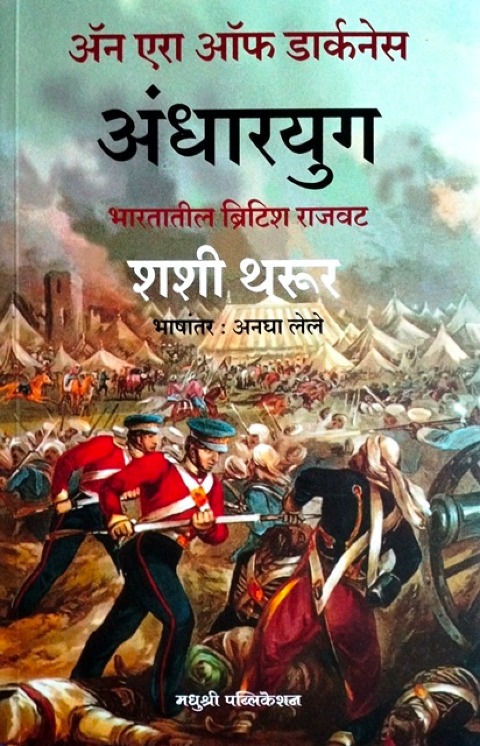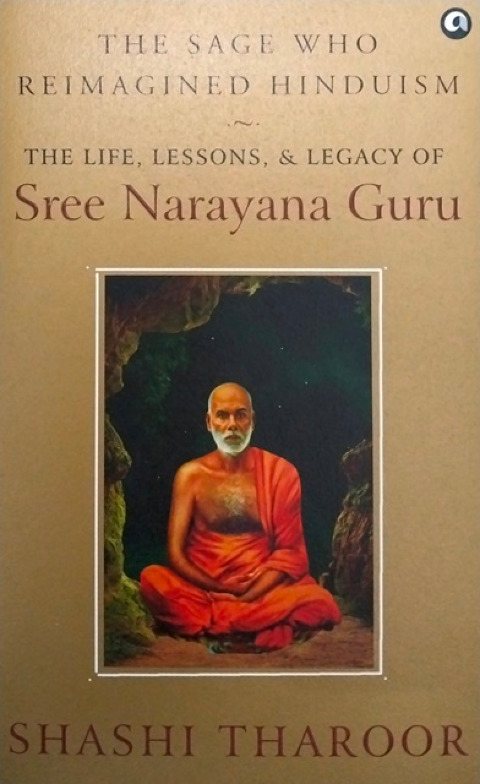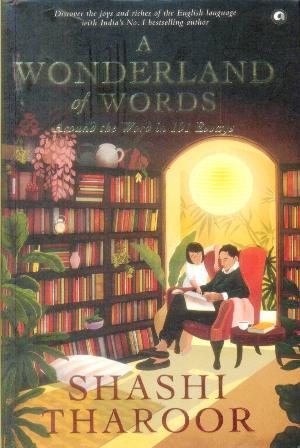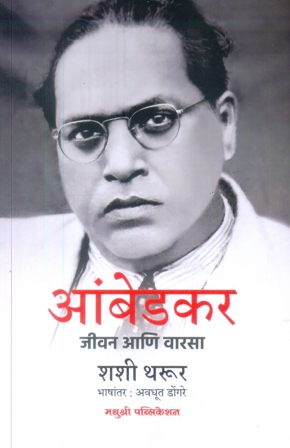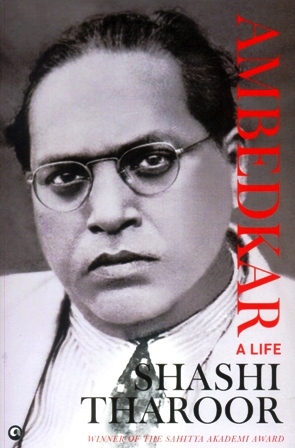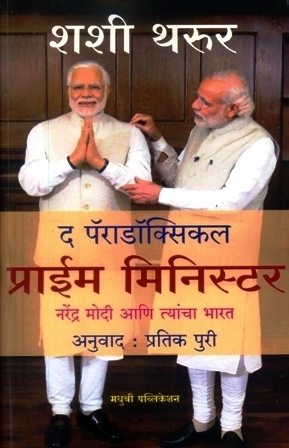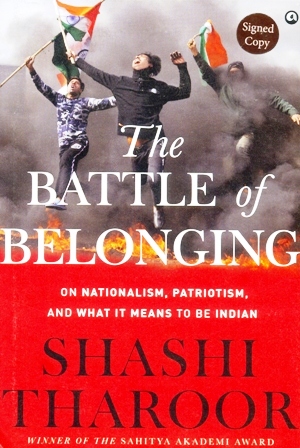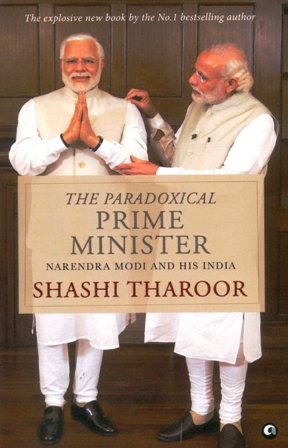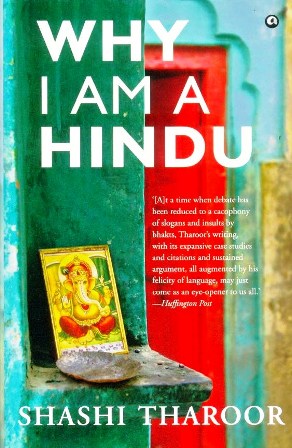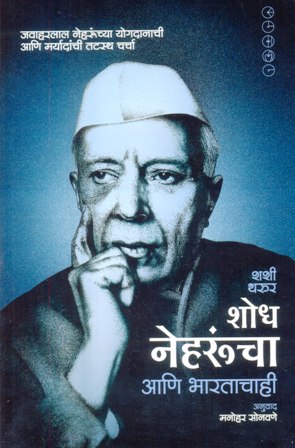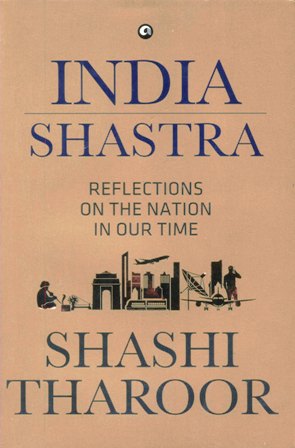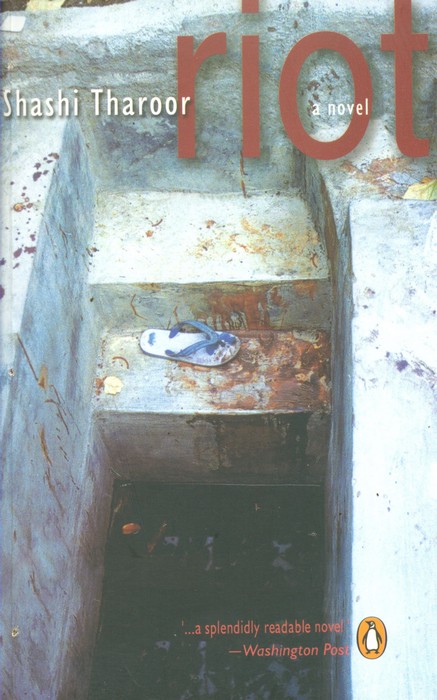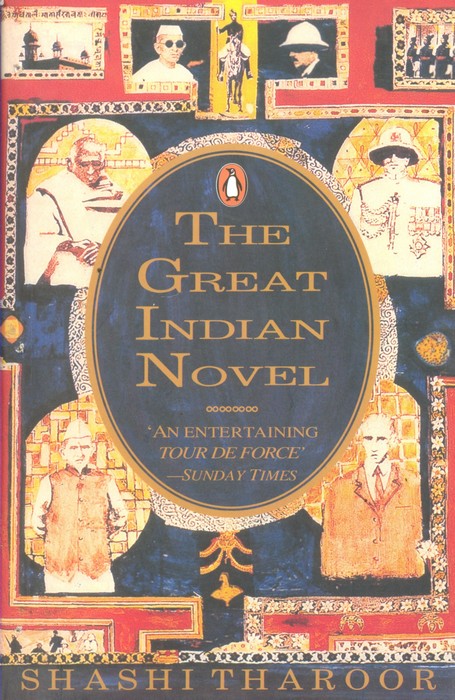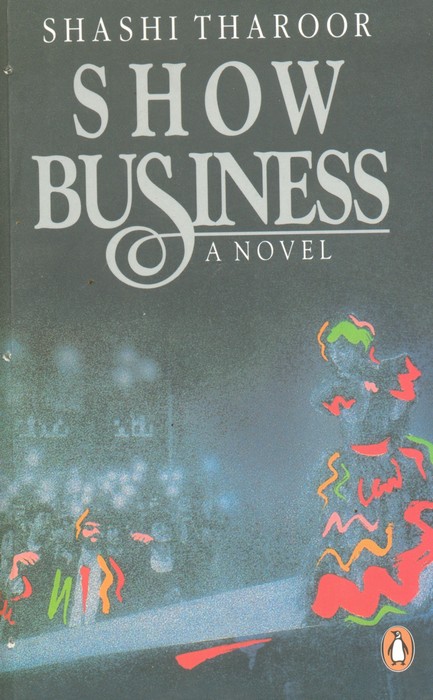-
Andharyug Bhartatil British Rajvat (अंधारयुग भारतातील ब्रिटिश राजवट)
लोकप्रिय लेखक शशी थरूर यांनी या स्फोटक पुस्तकामध्ये ब्रिटिश राजवट भारताकरिता किती विनाशकारी होती हे तीक्ष्ण युक्तिवाद, अचूक संशोधन, आणि ते ज्याकरिता प्रसिद्ध आहेत ते बुद्धिचातुर्य यांच्या साहाय्याने उलगडून दाखवले आहे. देशातील साधनसंपत्ती ब्रिटनमध्ये नेण्यापासून ते भारतीय वस्त्रोद्योग, लोखंड उद्योग आणि जहाजबांधणी उद्योगाचा विनाश, आणि कृषी उद्योगातील नकारात्मक परिवर्तनापर्यंत, वसाहतकारांनी जितक्या विविध मार्गांनी भारताचे शोषण केले त्याची तपासणी करण्याबरोबरच, त्यांनी ब्रिटिश राजवट भारतासाठी कशी चांगली होती हे मांडणाऱ्या ब्रिटिश साम्राज्याच्या समर्थकांचे युक्तिवादही हाणून पाडले आहेत. ब्रिटिश राजवटीने भारताला लोकशाही आणि राजकीय स्वातंत्र्य, कायद्याचे राज्य आणि रेल्वे या गोष्टी दिल्या आणि म्हणून ती भारतासाठी फायदेशीर होती, या मुद्द्यांचा त्यांनी खरपूस समाचार घेतला आहे. जे थोडे खरोखरच फायदे म्हणता येतील इंग्रजी भाषा, चहा आणि क्रिकेट त्यांचा प्रत्यक्षात भारतीयांना फायदा होणे अभिप्रेतच नव्हते, तर ते मुख्यतः वसाहतकारांच्या हितासाठीच होते, हे सांगायला ते विसरत नाहीत. अत्यंत प्रभावीपणे केलेली मांडणी आणि उत्कटतेने केलेला युक्तिवाद यामुळे ‘अॅन एरा ऑफ डार्कनेस’ हे पुस्तक भारतीय इतिहासाच्या सर्वांत वादग्रस्त कालखंडापैकी एक असलेल्या ब्रिटिश कालखंडाबद्दलचे अनेक चुकीचे समज दूर करेल यात शंका नाही.
-
Sree Narayana Guru The The Sage Who Reimagined Hinduism
The Sage Who Reimagined Hinduism is an inspirational account of one of the most important spiritual leaders and social reformers of modern India, Sree Narayana Guru. In terms of his contribution to the betterment of Indian society and Hinduism, he ranks with Swami Vivekananda, B. R. Ambedkar, and Mahatma Gandhi. However, he is not as well-known as he deserves to be, and this book is, among other things, an attempt to remedy that neglect. Born in 1855 into a modest, middle-class family in Travancore (now Kerala) the Guru belonged to the Ezhava caste, which was considered untouchable at the time. The story of how a boy from a socially disadvantaged caste rose to become a charismatic sage with millions of followers is a remarkable one. Yet, the Guru was not just an inspiring spiritual leader. He was also a social reformer who was determined to reshape the oppressive caste system that held millions in its grip. He fought to make the society he was part of more equal, establishing and consecrating temples that were open to all castes, founding schools and other educational institutions, and doing everything he could to empower the lower castes and break the malign influence of the upper castes. Today, if Kerala is one of the most progressive states in the country, plural, secular, and egalitarian, much of this can be traced back to the Guru’s transformative efforts. As the author writes: ‘[Sree Narayana Guru] stands unmatched…as the greatest reformer to emerge from southern India since the incomparable Adi Shankara a millennium earlier, and the most successful champion of the rights of oppressed Hindus in the twentieth century.’
-
A Wonderland of Words Around the Word in 101 Essay
Words are power. Words are magic. Words are fun. Words are sexy. Words can move you to tears. Words can make you laugh. And words can show you the world and everything in it with clarity and depth as few other things can. In this gloriously entertaining book, one of our greatest wordsmiths (and self-proclaimed bibliophile) Shashi Tharoor takes us on a tour of the words, concepts, and particularities that constitute the sublime (and sometimes mystifying) wonderland of the English language. He demystifies punctuation, guides us through the arcane rules of spelling and grammar, and explains a wide array of essential components of the language including acronyms, bacronyms, contronyms, oxymorons, kennings, metaphors, similes, idioms, euphemisms, palindromes, and much much more. He delves into the history and evolution of English, delights in its quirks, embraces its geographical variants, provides hilarious examples of its misuse around the world, is awed by the way in which the masters of literature use it, and revels in its beauty and grandeur. Passionate, learned, funny, and brilliantly readable, A Wonderland of Words is a book that will enchant and educate all those who delight in the English language.
-
Ambedkar Jivan Ani Varsa (आंबेडकर जीवन आणि वारसा)
डॉ. बाबासाहेब आंबेडकर हे नाव आज सर्वांत आदरणीय भारतीयांच्या नामावलीत घेतलं जातं आणि देशभरातील त्यांच्या पुतळ्यांची संख्या महात्मा गांधींच्या पुतळ्यांखालोखाल असेल. किंबहुना, आधुनिक काळातील 'सर्वांत थोर भारतीय' ठरवण्यासाठी अलीकडे एक मतचाचणी घेण्यात आली, त्यात दोन कोटींहून अधिक मतं नोंदवली गेली आणि त्यात आंबेडकरांना गांधींपेक्षा जास्त मतं मिळाली होती. आज सर्व प्रमुख राजकीय पक्षांमध्ये आंबेडकरांवर हक्क सांगण्यासाठी चढाओढ सुरू असते. मुख्यत्वे आंबेडकरांच्या प्रयत्नांमुळे अस्पृश्यतेवर कायद्याने बंदी आली आणि दलित समुदायाला प्रतिष्ठा मिळवून देण्यासाठी त्यांनी आयुष्यभर लढा दिला, त्यामुळे दलित समूहांमध्ये ते एक आदरणीय व्यक्तिमत्व आहेत. सर्वांत महत्त्वाचं म्हणजे भारतीय संविधानाचे शिल्पकार म्हणून त्यांचा गौरव केला जातो. व्यक्तीच्या अधिकारांची पाठराखण करणाऱ्या व दडपलेल्यांची उन्नती साधू पाहणाऱ्या उदारमतवादी, धर्मनिरपेक्ष, अनेकत्ववादी मूल्यांसह भारत आजपर्यंत लोकशाही म्हणून टिकला, त्याचं मुख्य कारण संविधान हे आहे (पण सध्या ही सर्व मूल्यं संकटात अडकली आहेत). 'डॉ. आंबेडकरांची थोरवी केवळ एकाच उपलब्धींपुरती मर्यादित मानता येत नाही, कारण सर्वच बाबतीत त्यांनी सारखीच असामान्य कामगिरी केली,' असं शशी थरूर लिहितात. आंबेडकरांच्या जन्मापासून मृत्यूपर्यंतचा जीवनपट प्रस्तुत चरित्रात संक्षिप्तपणे, सुबोधपणे, मार्मिकपणे व आदरभावाने उलगडला आहे.
-
Ambedkar: A Life
Babasaheb Bhimrao Ramji Ambedkar, MA, MSc, PhD, DSc, DLitt, Bar-at-Law, is today among the most revered of Indians, his statues across the country second only in number to those of Mahatma Gandhi. He even overtook Gandhi in a recent poll to determine the ‘greatest Indian’ of modern times, in which over 20 million votes were cast. All the major political parties vie with one another to claim him as their own. To the Dalits, he is a revered figure who was chiefly responsible for outlawing untouchability and fighting to give dignity to the community. And, most of all, he is hailed as the father of India’s Constitution, the principal reason why India continues to remain a democracy with liberal, secular, plural values (although all these are under siege at the present time) that seeks to uphold the rights of the individual and uplift the downtrodden. Writes Shashi Tharoor: ‘Dr Ambedkar’s greatness cannot be reduced to any one of [his] accomplishments, because all were equally extraordinary.’ In this new biography, Tharoor tells Ambedkar’s story with great lucidity, insight, and admiration. He traces the arc of the great man’s life from his birth into a family of Mahars in the Bombay Presidency on 14 April 1891 to his death in Delhi on 6 December 1956. He describes the many humiliations and hurdles Ambedkar had to overcome in a society that stigmatized the community he was born into, and the single-minded determination with which he overcame every obstacle he encountered. We are given insights into the various battles Ambedkar fought to make untouchability illegal, his disputes with the other political and intellectual giants of his era, including Gandhi and Nehru, and his determination to invest India with a visionary Constitution that enshrined within it the inalienable rights of the individual and modern conceptions of social justice. ‘In so doing,’ writes Tharoor, ‘he transformed the lives of millions yet unborn, heaving an ancient civilization into the modern era through the force of his intellect and the power of his pen.’ Deeply researched, searching, and insightful, Ambedkar: A Life offers readers a fresh and profound understanding of one of the greatest Indians who ever lived.
-
The Battle Of Belonging On Nationalism Patriotism
There are over a billion Indians alive today. But are some Indians more Indian than others? To answer this question, one that is central to the identity of every man, woman, and child who belongs to the modern Republic of India, eminent thinker and bestselling writer Shashi Tharoor explores hotly contested ideas of nationalism, patriotism, citizenship, and belonging. In the course of his study, he explains what nationalism is, and can be, reveals who is anti-national, what patriotism actually means, and explores the nature and future of Indian nationhood. He gives us a clear-sighted view of the forces working to undermine the ‘idea of India’ (a phrase coined by Rabindranath Tagore) that has evolved through history and which, in its modern form, was enshrined in India’s Constitution by its founding fathers. Divided into six sections, the book starts off by exploring historical and contemporary ideas of nationalism, patriotism, liberalism, democracy, and humanism, many of which emerged in the West in the eighteenth and nineteenth centuries, and quickly spread throughout the world. The author then summarizes India’s liberal constitutionalism, exploring the enlightened values that towering leaders and thinkers like Gandhi, Nehru, Tagore, Ambedkar, Patel, Azad, and others invested the nation with. These are contrasted with the narrow-minded, divisive, sectarian, ‘us vs them’ alternatives formulated by Hindutva ideologues, and propagated by their followers who are now in office. Today, the battle is between these two opposing ideas of India, or what might be described as ethno-religious nationalism vs civic nationalism. The struggle for India’s soul has heightened, deepened, and broadened, and threatens to hollow out and destroy the remarkable concepts of pluralism, secularism, and inclusive nationhood that were bestowed upon the nation at Independence. The Constitution is under siege, institutions are being undermined, mythical pasts propagated, universities assailed, minorities demonized, and worse. Every passing month sees new attacks on the ideals that India has long been admired for, as authoritarian leaders and their bigoted supporters push the country towards a state of illiberalism and intolerance. If they succeed, millions will be stripped of their identity, and bogus theories of Indianness will take root in the soil of the subcontinent. However, all is not yet lost, and this erudite and lucid book shows us what will need to be done to win the battle of belonging and strengthen everything that is unique and valuable about India. Firmly anchored in incontestable scholarship, yet passionately and fiercely argued, The Battle of Belonging is a book that unambiguously establishes what true Indianness is and what it means to be a patriotic and nationalistic Indian in the twenty-first century.
-
Why I Am A Hindu
In Why I Am a Hindu, one of India’s finest public intellectuals gives us a profound book about one of the world’s oldest and greatest religions. Starting with a close examination of his own belief in Hinduism, he ranges far and wide in his study of the faith. He talks about the Great Souls of Hinduism, Adi Shankara, Patanjali, Ramanuja, Swami Vivekananda, Ramakrishna Paramahamsa, and many others who made major contributions to the essence of Hinduism. He delves deep into Hinduism’s most important schools of thought (such as the Advaita Vedanta). He explains, in easily accessible language, important aspects and concepts of Hindu philosophy like the Purusharthas and Bhakti, masterfully summarizes the lessons of the Gita and Vivekananda’s ecumenism, and explores with sympathy the ‘Hinduism of habit’ practised by ordinary believers. He looks at the myriad manifestations of political Hinduism in the modern era, including violence committed in the name of the faith by right-wing organizations and their adherents. He analyzes Hindutva, explains its rise and dwells at length on the philosophy of Deen Dayal Upadhyaya, its most significant ideologue. He is unsparing in his criticism of extremist ‘bhakts’, and unequivocal in his belief that everything that makes India a great and distinctive culture and country will be imperiled if religious ‘fundamentalists’ are allowed to take the upper hand. However, he also makes the point that it is precisely because Hindus form the majority that India has survived as a plural, secular democracy. A book that will be read and debated now and in the future, Why I Am a Hindu is a revelatory and original masterwork.
-
India Shastra
Renowned author and politician, Shashi Tharoor demystifies the ongoing transformation of India. This has been a time of unprecedented change in the country. The transformation of Indias politics, economy, foreign policy, media, civil rights, governance and a myriad other aspects of our society and government has been swift and disruptive, sometimes brutally so. Narendra Modi, the nations new Prime Minister and his Bharatiya Janata Party, dominate the political scene, as the Congress once did and are attempting to change the way we work, think, pray and conduct ourselves as citizens of the planets most populous democracy. There are signs that the nation is moving in directions that will benefit its people-the economy has begun to revive, its foreign policy appears to be purposefully pursuing a visible place in the world, polls show that a significant percentage of the nations youth are optimistic about the future, at the same time, there are serious concerns about the rise of majoritarianism and religious fundamentalism (Often, this is one and the same thing), a disquieting intolerance of free speech, dissent and religious freedom, moreover, there appears to be no end to corruption, hate speech, criminals in politics, terrorism, violence against women, bureaucratic lethargy, governmental incompetence, endemic poverty, environmental degradation and a host of other problems that India has been struggling to overcome for decades. What does the future hold? Is the promise of good times a mere illusion? Have we forgotten the democratic, humane, secular and liberal values that our founding fathers endowed us with? Are high-speed trains and missions to Mars eclipsing the vital need to achieve universal literacy, eradicate poverty and provide food, shelter and health-care for all? Shashi Tharoor, one of our most distinguished and insightful writers, attempts to answer these and other important questions and demystify the complex issues that have been thrown up by the ongoing transformation of the nation. After chronicling Indias transformation over the years in several previous books, he brings his insights into Indian society, economics and politics up to date in wide-ranging short essays that extend the narrative right up to the present time. Lucid, brilliantly argued, balanced and illuminating, India Shastra is required reading for anyone who wishes to understand todays India. Interesting Facts Bestselling author Shashi Tharoors reflections on India in the twenty-first century. Over two dozen essays on Modi-fied India and observations on the new governments policies and performance. Writing on Indian politics, education, energy, development, culture and much more. Combines facts, statistics and opinions to discuss the changing facets of India. Insiders perspective on the future of India under PM Modi. Astute and witty essays on the past, present and future of Indian politics. About the Author Shashi Tharoor is the bestselling author of fourteen previous books, both fiction and non-fiction, besides being a noted critic and columnist, a former Under Secretary-General of the United Nations and a former Minister of State for Human Resource Development and Minister of State for External Affairs in the Government of India. He served 29 years at the United Nations, culminating as Under-Secretary under Secretary-General Kofi Annans leadership. As Indias official candidate to succeed Annan as UN Secretary - General, he emerged a strong second out of seven contenders. On returning to India he contested the 2009 elections on behalf of the Indian National Congress and was elected to Parliament from Thiruvananthapuram. Re-elected in 2014, he chairs Parliaments External Affairs Committee. Shashi Tharoors books include the path-breaking satire The Great Indian Novel (1989), the classic India - From Midnight to the Millennium (1997) and most recently, the visionary Pax Indica - India and the World of the 21st Century (2012). He has won numerous literary awards, including a Commonwealth Writer's Prize, was honoured as New Age Politician of the Year (2010) by NDTV and pioneered among Indian politicians the use of Twitter, where he has over two and a half million followers, as of 2014. Dr. Tharoor earned his Ph.D. at the Fletcher School of Law and Diplomacy at the age of 22 and was named by the World Economic Forum in Davos in 1998 as a Global Leader of Tomorrow. He was awarded the Pravasi Bharatiya Samman, Indias highest honour for overseas Indians.
-
Riot
Who killed twenty-four-year-old Priscilla Hart? And why would anyone want to murder this highly motivated, idealistic American student who had come to India to volunteer in women’s health programs? Had her work make a killer out of an enraged husband? Or was her death the result of a xenophobic attack? Was she involved in an indiscriminate love affair that had spun out of control? Had a disgruntled, deeply jealous colleague been pushed to the edge? Or was she simply the innocent victim of a riot that had exploded in that fateful year of 1989 between Hindus and Muslims? In his long-awaited new novel, Shashi Tharoor, the acclaimed author of The Great Indian Noveland Show Business,whom the Independent(London) called "one of the finest novelists writing in English today," once again triumphs. Experimenting masterfully with narrative form, he chronicles the mystery of Priscilla Hart’s death through the often contradictory accounts of a dozen or more characters, all of whom relate their own versions of the events surrounding her killing. Like his two previous novels, Riotprobes and reveals the richness of India, and is at once about love, hate, cultural collision, the ownership of history, religious fanaticism, and the impossibility of knowing the truth.
-
Show Business
Critically ill, Bollywood superstar Ashok Banjars lies suspended between life and death in the intensive care unit of a plush Bombay hospital, watching the final re-run of his life... Visitors come and go, talking,praying,pleading with him to rise from his coma but there is no reaction from Banjara.A prisoner of the technicolour film that plays inside his head. As if for the first time, he watches himself rise to the heights of Bombay's commercial cinema from unremarkable beginnings, and encounters again all the people he met an dused along the way... As a backdrop to these characters is anendless caroused of the major hits he's acted in-gaudy, exuberant, beguiling- a never- ending fantasy took over his life completely and transformed it into an astonishing, compelling lie. Show Business is many books rolled into one- it is a story about the telling of stories, t is a wonderfully funny tale about the romance and folly of cinema, it is a novel on an epic scale of ambition, greed, love, deception and death. And, perhaps most important it is a fable for our time which teaches us that we live in a world where illusion is the only reality and nothing is what it seems.

